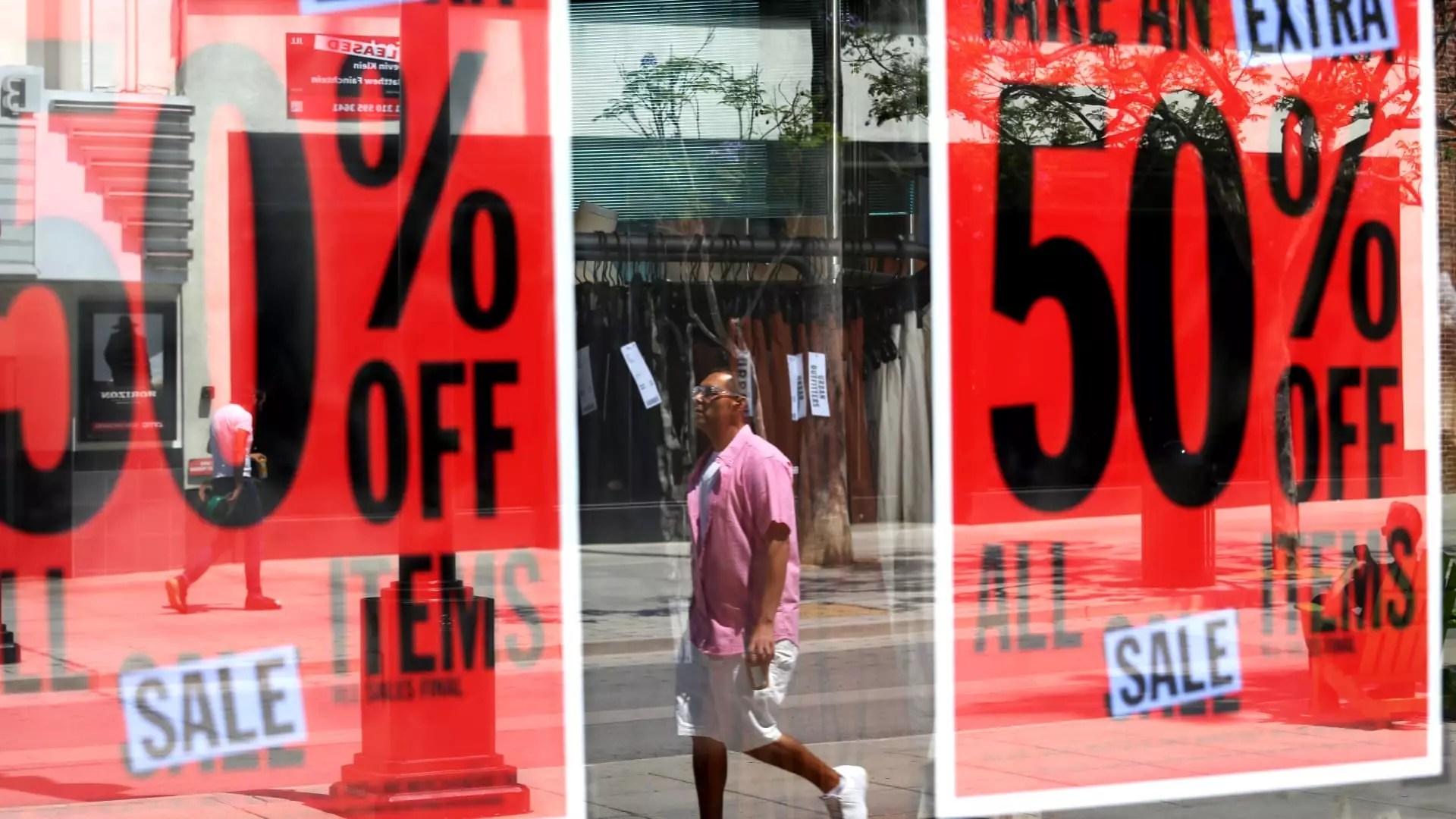In a landscape fraught with uncertainty, the ongoing trade war instigated by President Donald Trump has compelled retailers to adopt drastic measures as a survival strategy. The ramifications of high tariffs have incited fear not just among business owners but also within the broader consumer base. As the potential for price increases looms ominously ahead, retailers are resorting to aggressive marketing tactics, creating a cultural climate of urgency and panic. Are these strategies simply a way to manipulate consumer behavior, or are they a legitimate reaction to an erratic global economic scenario?
The approach many retailers are adopting involves urging customers to buy now before tariffs lead to inevitable price hikes or product shortages. Brands such as Beis and Bare Necessities are leveraging this uncertainty as a marketing tool, seemingly unaware of the ethical implications of pushing consumers into a corner. Yes, it’s essential to stimulate cash flow, especially in smaller brands that lack the financial backing of larger corporations, but are these marketing maneuvers really catering to consumer needs or simply pandering to corporate survival instincts?
The High Stakes of Retail versus Global Dynamics
Some might argue that the imposition of steep tariffs, reaching upwards of 145%, is an unavoidable evil of global trade that reshapes market dynamics. However, the impact is not as equally distributed as one might think. The struggle is profoundly pronounced for smaller companies, which often have fewer options within their supply chains as compared to retail giants such as Walmart or Target. In a world where agility and flexibility in operations are paramount, the severity of tariff-induced challenges presents a formidable barrier for smaller firms, potentially resulting in their extinction.
Moreover, the psychological impact of looming tariffs on consumer sentiment cannot be underestimated. Many reports indicate a general skittishness among consumers as they hesitate to commit to purchases amid this sea of uncertainty. Retailers are effectively caught in a vicious cycle where they must balance immediate profitability with long-term brand stability. A momentary reduction in prices in anticipation of future hikes might feel like a smart financial maneuver, but it resembles a gambler’s gamble, leading to potential alienation of loyal customers down the line. Are we witnessing a generation of retailers who are too consumed by survival to consider long-term strategies that build loyalty and trust?
Humor as a Tactic: Clever or Cynical?
One particularly striking tactic employed by some brands, such as Beis, is the use of humor to address the grim reality of tariffs. In an ongoing trade crisis, opting for light-hearted messaging may seem like an innovative approach to ease consumer anxieties. However, one must question the intent behind this humor. Is it a genuine attempt to connect with consumers, or is it merely a facade to mask and distract them from a more uncomfortable reality?
Consider one of Beis’ communications, laced with witty remarks about “company-wide ramen diets” and spreadsheets having their own spreadsheets. The subtext, however, resonates with despair—these are not just jokes but reflections of a brand grappling with what they term a “complete dumpster fire.” While humor can sometimes bridge divides and foster connections, the gravity of the situation cannot be overlooked. Are brands using humor to detract from the serious implications of tariff strategies, ultimately trivializing an important socio-economic issue?
Consumer Morality in the Shadow of Commerce
In this hyper-commercialized environment, the moral considerations of how businesses adjust to tariffs should not be sidelined. Are retail brands prioritizing the welfare of consumers, or simply their own bottom lines? The pressure for quick sales might drive brands to implement ‘pre-tariff’ sales or other promotions designed to stimulate spending, but at what cost? When brands appeal to shopping frenzies fueled by fear, they may inadvertently foster a culture of consumerism that prioritizes short-term gains over long-term customer relationships.
While it’s undeniable that retailers need to be proactive in managing supply-chain disruptions and changing consumer behavior as a result of tariffs, this should not come at the expense of ethical considerations. The long-standing question looms: can commerce and morality coexist when the stakes are high? It’s not just the financial survival of companies that is at risk—it’s the ethical fabric within which these businesses operate.
The looming specter of tariffs raises complex questions that extend beyond economics into the realm of ethics, consumer sentiment, and corporate responsibility. As the retail landscape continues to evolve under the pressures of this unprecedented crisis, a thoughtful exploration of the implications is not only necessary but critical. While navigating these turbulent waters, one must hope that retailers recognize the need for a more transparent and morally grounded approach in their dealings.


Leave a Reply